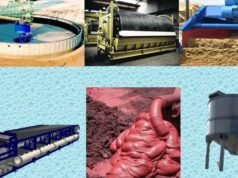Almost all property owners have had plumbing emergencies, be it a leaky pipe or an overflowing toilet. These emergencies rob you the peace of mind and disrupt operations when they occur. They can cause extensive damage, especially if they are left unaddressed.
Luckily, with adequate preparation and knowledge, you can prevent plumbing emergencies or reduce the extent of damage when an emergency occurs. It is easy to avoid a plumbing emergency when you understand the Dos and Don’ts to keep your plumbing system in perfect working condition.
Dos to Prevent Plumbing Emergencies
Table of Contents

Do: Check for Leaks
Leaks are the most common plumbing issue in most homes. Within a short time, leaks can cause water bills to rise dramatically. Due to regular usage, toilets and kitchen sinks are more likely to experience leaks.
Frequent leak inspection, starting from the faucets, sink strainer, to even the pipes, can help detect leaks in the early stages and have them fixed. You can try wiping surfaces around fixtures and searching for signs of moisture to ensure there’re no leaks.
Do: Look for Signs of Corrosion
Pipe corrosion occurs over time. It can cause significant problems both to the property and the health of the occupants. When pipes corrode, they can leak or break, leading to flooding and other damages. You must check for the signs of corrosion to plan for repairs or replacements where necessary.
Common symptoms of corrosion include a strange musty smell, colored streaks, and the pipes beginning to leak. If you notice any signs of plumbing system corrosion, call a professional immediately. Corroded pipes should be replaced immediately, especially when severe, to prevent costly repairs.
Do: Regularly Wash the Water Heater Drain
As a plumbing maintenance tip, you should clean your water heater drain twice a year. The hard water that comes from the water heater contains minerals that can create residues in the drain. Failure to clean these sediments might result in a clog that renders the heater inefficient. According to teamemergencyplumber.com, this exercise can save you the time and money of hiring an emergency plumber when your water heater breaks down.
Do: Pour Boiling Water into Your Bathroom Drains
Drains are clogged by accumulating sediments, such as soap particles, grease, and hairs. Pouring boiling water into your bathroom drains can help break up the accumulated sediments to unclog the drains. Frequent pouring of 2 to 3 gallons of hot water can help maintain your shower and tub drains clean and free from stubborn clogs.
Do: Use Cold Water When Using Your Garbage Disposal
Running cold water under pressure in the sink can help keep the kitchen drains from blocking because of unwanted waste. Hot water is discouraged, as it may result in more significant problems. Fill the sink with cold water to about 1/4th mark, remove the standard drain pipe, and switch on the garbage disposal. Run the water until the disposal finishes breaking down the food. This technique helps flush the chopped up items down the drain and avoid clogs.
Don’ts to Prevent Plumbing Emergencies
Don’t: Flush Everything on Your Toilet
It would be best if you only flushed tissues (and the obvious) down your toilet. Other items, such as wipes, diapers, sanitary towels, and toys, can cause your toilet drain to block. Blocked drains will eventually lead to overflowing toilets or sewer backups, requiring emergency attention.
Don’t: Pour Oils or Grease into the Sink
Avoid pouring oils, grease, and cooking fat in your kitchen sink, as they can cause stubborn blockages in your kitchen drain. Instead, place them on a bowl, give them time to harden, and throw them in your regular trash can.
Don’t: Ignore Leaks
No leak is small enough to be ignored. The minor leak can escalate if unattended and cause serious flooding. The outcome will be significant damage to your property and losses.
Don’t: Dispose of Husks and Other Fibrous Materials in the Garbage Disposal
Fibrous materials, such as onion skins, can clog the disposal blades and damage the motor. Throw these items in your trash can.
Don’t: Pour Hot Water into the Toilets
Toilet bowls are not designed to handle hot water and can cause them to crack. The use of hot water in the toilets can cause you to incur otherwise avoidable repair costs.
By following the aforementioned dos and don’ts, you can significantly reduce the chances of plumbing emergencies arising. When an emergency strikes, however, be sure to bring in an emergency plumber as soon as possible.













































